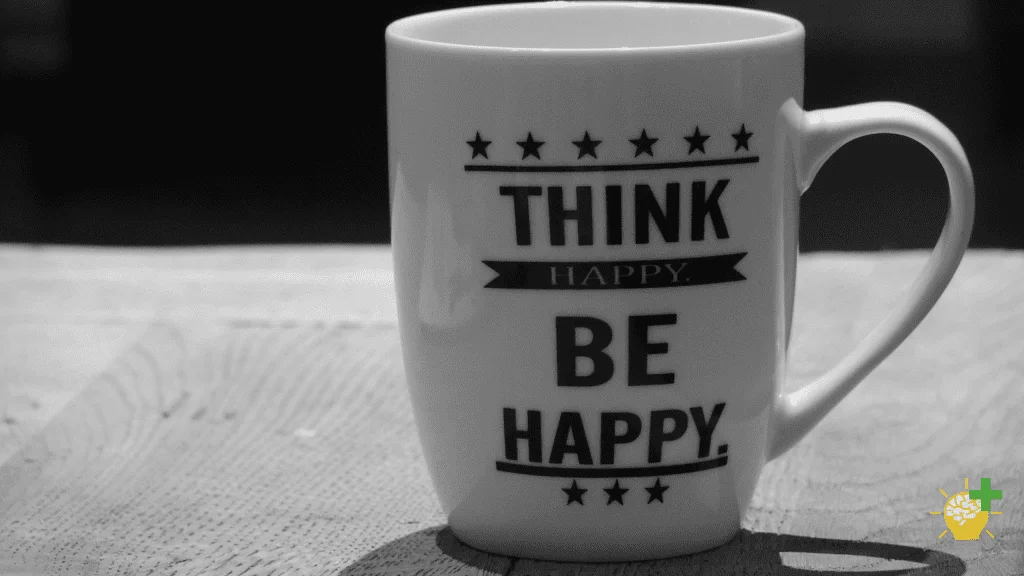Do you know anyone who’s highly intelligent but tends to have trouble getting a grip on their emotions in stressful situations? Maybe that person is your spouse, boss, friend, or even you. You’re not alone if your ability to self-introspect is low; high self-awareness is rare.
The good news is that you can develop self-awareness by improving yourself, which is what this article is about. I’ll explain how to develop this rare ability and share some inspiring Working on Myself quotes to spur you into action.
First, let’s set the stage by briefly explaining what self-awareness truly is, its importance, signs to know you lack it, and how to develop it.
What Exactly Is Self-Awareness, and Is It Really Important?
In simple terms, self-awareness is being able to consistently focus on yourself. That is, recognize how your thoughts, emotions, or actions match your values and beliefs. It also means paying attention to how our behavior impacts the people around us.
To be self-aware is all about getting to know who you are and understanding your thinking and behavior patterns. Think of it like having a friendly conversation with yourself to figure out what makes you tick!
A highly self-aware person can objectively evaluate or interpret their thoughts and behaviors despite their emotions or feelings. This is why the first step to true personal growth is becoming more self-aware.
And yes, self-awareness is an important emotional ability. Here are some reasons you should put in the effort to develop it:
- Being self-aware allows you to live in the present moment and take conscious action from a place of awareness.
- It puts you in touch with your core values and beliefs, making you more intentional in life.
- You recognize your strengths and weaknesses and can leverage your support system to compensate for your limitations.
- You recognize that feelings come and go. This helps you develop emotional intelligence.
- You trust yourself enough to go within and find answers.
- You are open to change, meaning you can easily recognize when something no longer serves you and let it go.
- Self-awareness allows you to adjust your behavior when interacting with people because you are constantly mindful of how you come across to others.
- You enjoy better relationships, improved communication, increased confidence, and better decision-making skills.
Signs You Rank Low in Self-Awareness
The vast majority of people tend to do poorly when it comes to self-introspection. In fact, Harvard Business Review says only about 10-15% of people are self-aware.
Why do most people lack this essential ability? Because we assume we already have it! And that’s one reason many don’t consciously read and digest more Working on Myself quotes.
Here are some behaviors that show a lack of self-awareness:
- Chronic impulsiveness: Some degree of spontaneity is okay, but constantly acting on a whim or without thinking can lead to risky behaviors with negative consequences. Also, chronic impulsiveness can leave you at the mercy of your emotions.
- Frequent outbursts: While everyone overreacts occasionally, frequent outbursts might indicate a deeper issue, such as a mental health problem or having a hard time managing emotions.
- Not open to feedback: Someone with low self-awareness tends to view feedback as personal attacks or criticism and react defensively whenever others offer feedback. They are not willing to take advice from others and think they are always right.
- Excessive fault-finding: A lack of self-awareness may manifest as being highly critical of others. Although they may appear confident on the outside, people who get a kick out of bad-mouthing or putting others down at every chance often have deep-seated insecurities.
- Controlling behavior: A person who needs to always be in control is clearly lacking in self-awareness. Controlling behavior can show up as trying to dominate everyone around or refusing to listen to people, even when they offer helpful advice. Usually, people who behave this way don’t trust others to do anything right.
If you’ve determined from the above signs that your self-awareness is low, don’t beat yourself up. Instead, start devoting more time and energy to cultivating healthy routines and practices that will result in higher self-awareness and build confidence over time.
That’s exactly what the next section is about.
How to Cultivate Self-Awareness

Developing self-awareness is like training a muscle; you need to hit the gym regularly, be consistent with your exercise regimen, and be patient because the muscle won’t show up overnight.
Follow these strategies for inspiration to become more self-aware and find happiness.
Visualize Your Ideal Self
It’s hard to be more self-aware without personal standards and beliefs. What are your core values? Who do you want to become?
Once you’ve figured this out, constantly hold that vision in your mind. Spend time as often as possible visualizing yourself as that ideal version of your authentic self.
This way, you have an ideal self to work toward and have a personal standard to measure yourself against for personal growth.
Pay Attention
Be mindful of what’s happening in and around you in the present moment. It will take lots of practice, but you must learn to pay attention to your thoughts and emotions as they occur to help you manage them better.
Besides listening to yourself, make it a point to pay extra attention to the people around you and how your behavior impacts them. If more than one person gives you negative feedback (directly or indirectly) about a particular behavior, it’s your cue to work on that aspect.
Practice Self-Reflection
Self-reflection is a huge part of being more self-aware. Make time to go inward and engage with your thinking patterns and emotions as often as possible. Meditation and journaling can offer insight into your inner world and what drives your behaviors.
Ask “What” Not “Why” Questions
Asking why we behave the way we do is a common mistake that will likely send us on a downward spiral of negative thoughts, especially when reflecting on inappropriate thoughts, words, and actions.
Instead of focusing on your weakness (which is what “why” questions often make us do), ask “what” questions.
For example, you fly off the handle with your spouse and later ask yourself the following questions when you self-reflect:
- What emotions was I feeling during the interaction?
- What can I do to get a handle on this emotion?
By asking “what” questions, you focus on finding a solution rather than spotlighting your weaknesses.
Feed Your Mind
Read good books, listen to podcasts that inspire growth, and consume online content that nudges you to learn more about yourself and what makes you tick. And considering you want to work on yourself, search and ponder as many Working on Myself quotes as you can find online and offline.
Ask for Feedback
While feedback isn’t always positive, it can help you identify blind spots in your self-reflection and self-assessment exercises.
However, you need to ask for specific feedback to help you take more concrete and effective steps. Also, be sure to let others know they are doing you a favor, so you’ll like them to be as honest as possible. This generally means you should ask people you trust for feedback or advice.
You can ask for feedback from:
- Trusted family or friends who know you well.
- A coach who works with you to improve certain aspects of your work or life.
- A therapist who’s helping you to gain insight into what drives your behaviors.
- A mentor with lots of experience in your chosen path.
12 Inspiring Working on Myself Quotes

Now that we’ve covered the basics, here are some inspirational quotes to help feed your mind and inspire you to work on yourself.
- “You can’t change the direction of the wind, but you can adjust your sails to always reach your destination.” – Jimmy Dean
- “The more you know yourself, the more clarity there is. Self-knowledge has no end.” – Jiddu Krishnamurti
- “No one is free who has not obtained the empire of himself. No man is free who cannot command himself.” – Pythagoras
- “The only person you are destined to become is the person you decide to be.” – Ralph Waldo Emerson
- “The best investment you can make is in yourself.” – Warren Buffett
- “The more that you read, the more things you will know. The more that you learn, the more places you’ll go.” – Dr. Seuss
- “Your only limit is the amount of action you take.” – Tony Robbins
- “Believe in yourself and all that you are. Know that there is something inside you that is greater than any obstacle.” – Christian D. Larson
- “The greatest glory in living lies not in never falling, but in rising every time we fall.” – Nelson Mandela
- “What you get by achieving your goals is not as important as what you become by achieving your goals.” – Zig Ziglar
- “The biggest adventure you can ever take is to live the life of your dreams.” – Oprah Winfrey
- “If you don’t like something, change it. If you can’t change it, change your attitude.” – Maya Angelou




